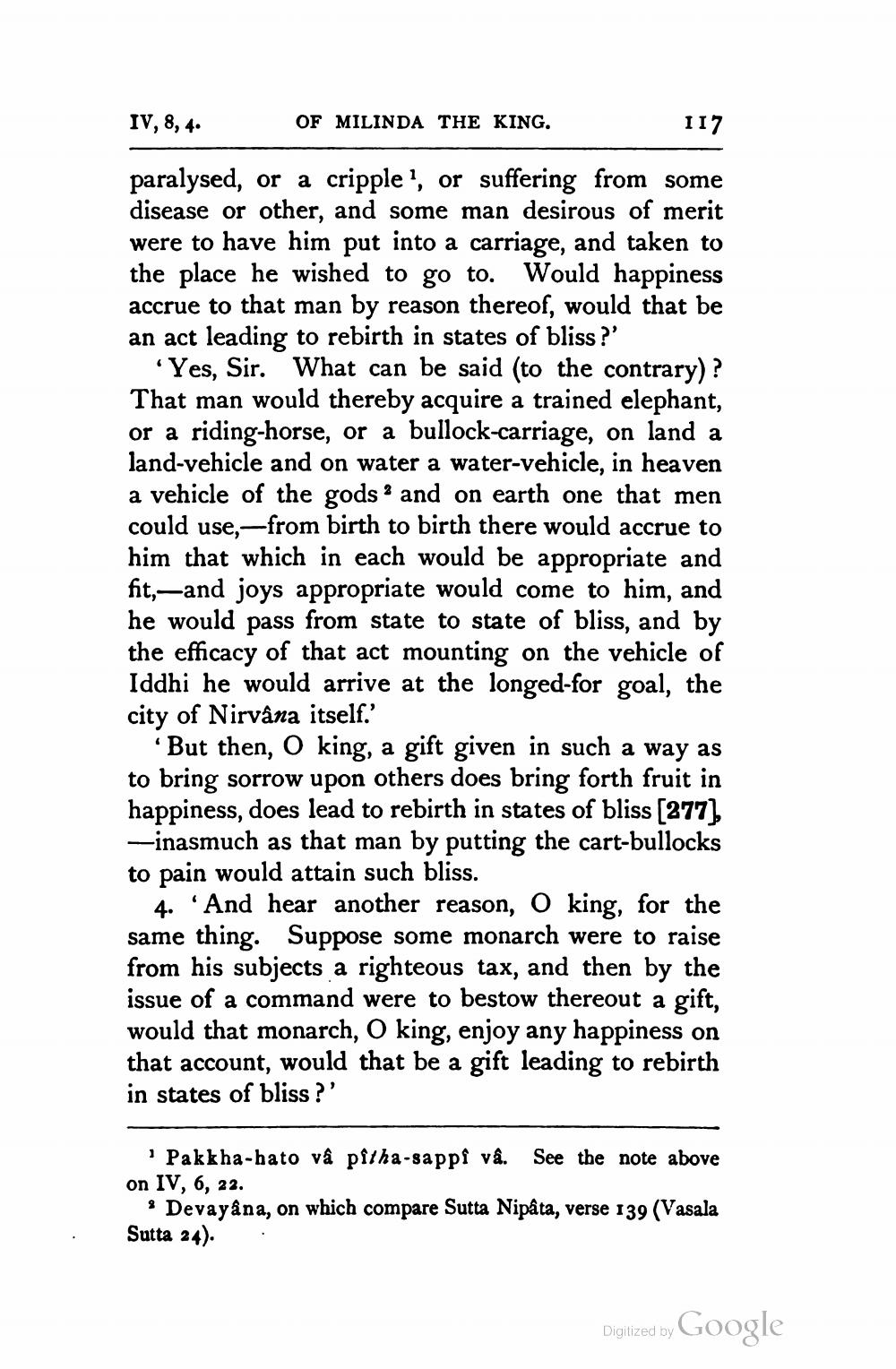________________
IV, 8, 4.
117
paralysed, or a cripple, or suffering from some disease or other, and some man desirous of merit were to have him put into a carriage, and taken to the place he wished to go to. Would happiness accrue to that man by reason thereof, would that be an act leading to rebirth in states of bliss?'
2
'Yes, Sir. What can be said (to the contrary)? That man would thereby acquire a trained elephant, or a riding-horse, or a bullock-carriage, on land a land-vehicle and on water a water-vehicle, in heaven a vehicle of the gods and on earth one that men could use, from birth to birth there would accrue to him that which in each would be appropriate and fit, and joys appropriate would come to him, and he would pass from state to state of bliss, and by the efficacy of that act mounting on the vehicle of Iddhi he would arrive at the longed-for goal, the city of Nirvâna itself.'
'But then, O king, a gift given in such a way as to bring sorrow upon others does bring forth fruit in happiness, does lead to rebirth in states of bliss [277], -inasmuch as that man by putting the cart-bullocks to pain would attain such bliss.
OF MILINDA THE KING.
4. 'And hear another reason, O king, for the same thing. Suppose some monarch were to raise from his subjects a righteous tax, and then by the issue of a command were to bestow thereout a gift, would that monarch, O king, enjoy any happiness on that account, would that be a gift leading to rebirth in states of bliss?'
Pakkha-hato vâ pitha-sappî vâ. See the note above on IV, 6, 22.
* Devayâna, on which compare Sutta Nipâta, verse 139 (Vasala Sutta 24).
Digitized by
Google




